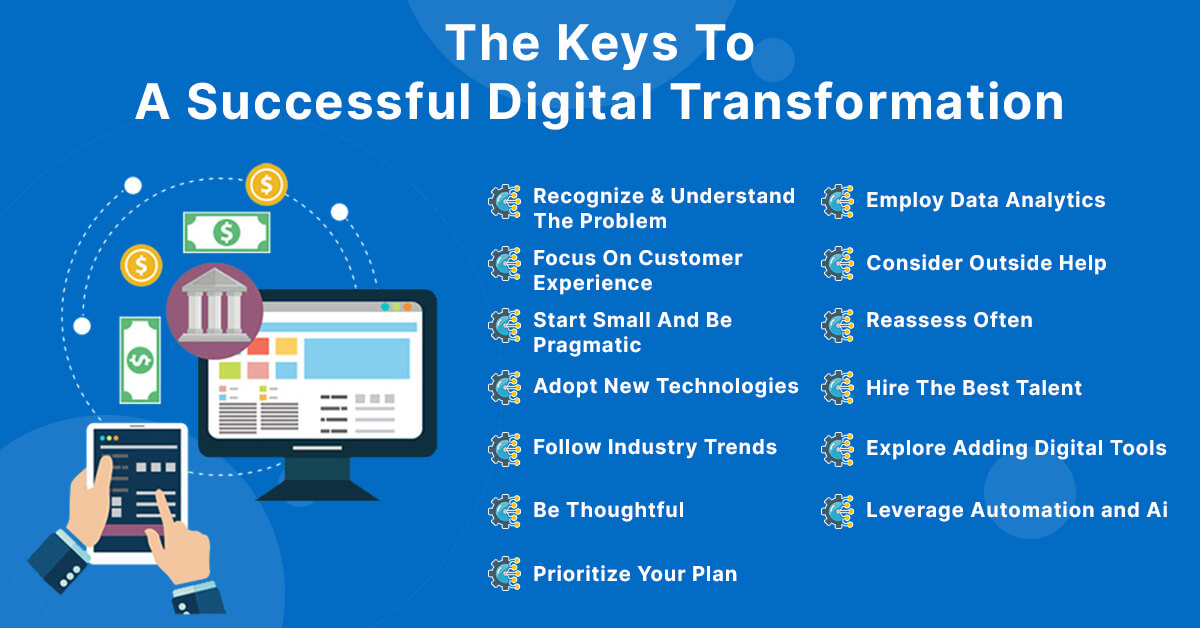Top 10 Benefits of Learning DevOps

Mastering DevOps offers multifaceted advantages in modern software development. The Top 10 Benefits of Learning DevOps encompass streamlined workflows, accelerated delivery cycles, and enhanced team collaboration. Efficiency reigns as automation reduces manual tasks, fostering productivity and cost-effectiveness. Continuous integration and deployment bolster code quality, ensuring rapid feedback loops and quicker issue resolution. Scalability becomes seamless, enabling businesses to adapt swiftly to evolving demands. Security is fortified through DevSecOps practices, mitigating risks, and ensuring compliance. Moreover, learning DevOps cultivates a culture of innovation, fostering a dynamic environment where experimentation thrives. Ultimately, DevOps proficiency empowers organizations to thrive in the fast-paced digital landscape, driving growth and success.
Contents
- 0.1 DevOps Overview
- 0.2 Shorten Production Cycles
- 0.3 Increased Deployment Success Rates
- 0.4 Improved Collaboration and Communication
- 0.5 Increased Efficiency Through Automation
- 0.6 Work with Good Developers
- 0.7 A Good Organizational Culture
- 0.8 Increase Product Quality
- 0.9 Increase Your Value
- 0.10 Become Respected in IT
- 0.11 Increase Your Salary
- 1 Conclusion
DevOps Overview
DevOps, an amalgamation of development and operations, revolutionizes software development and deployment. It fosters collaboration, automation, and continuous integration/delivery (CI/CD), bridging the gap between development and IT operations. DevOps ensures faster, more reliable software delivery through iterative processes and feedback loops. Embracing DevOps principles streamlines workflows, enhances product quality, and boosts team productivity. DevOps training equips professionals with essential skills in tools like Docker, Kubernetes, and Jenkins, empowering them to automate infrastructure, manage code efficiently, and deploy applications seamlessly. DevOps accelerates innovation, drives business growth, and enhances customer satisfaction by cultivating a culture of collaboration and automation.
Here are the top 10 Benefits of Learning DevOps
-
Shorten Production Cycles
Learning DevOps significantly shortens production cycles, yielding numerous benefits. Firstly, it enhances collaboration between development and operations teams, streamlining communication and accelerating feedback loops. Secondly, automation reduces manual errors, increasing efficiency and reliability in the deployment process. Thirdly, continuous integration and delivery facilitate rapid deployment of updates, ensuring faster time-to-market for products or services. Moreover, DevOps fosters a culture of experimentation and innovation, allowing teams to adapt quickly to changing market demands. Ultimately, mastering DevOps empowers organizations to achieve agility, cost-effectiveness, and competitive advantage in today’s fast-paced business landscape.
-
Increased Deployment Success Rates
Learning DevOps significantly boosts deployment success rates by streamlining collaboration between development and operations teams. This holistic approach enhances communication, fosters a culture of continuous integration and delivery, and automates repetitive tasks, reducing errors and downtime. By embracing DevOps practices, organizations cultivate faster, more reliable deployment processes, ensuring quicker time-to-market for products and services. Moreover, DevOps encourages innovation and scalability, empowering teams to adapt swiftly to changing market demands. Ultimately, the adoption of DevOps not only increases deployment success but also enhances overall organizational efficiency and competitiveness.
-
Improved Collaboration and Communication
Learning DevOps offers a transformative approach to collaboration and communication within teams. It streamlines workflows by integrating development and operations processes, fostering a culture of cooperation. DevOps cultivates quicker response times to issues through automation and continuous feedback loops, enhancing productivity and efficiency. Teams become more cohesive, breaking down silos and promoting cross-functional expertise. This results in accelerated development cycles, faster time-to-market, and improved product quality. Ultimately, mastering DevOps principles empowers teams to collaborate seamlessly, communicate effectively, and deliver value consistently, driving organizational success.
-
Increased Efficiency Through Automation
Embracing DevOps fosters a culture of automation, driving heightened efficiency across software development and operations. Organizations streamline processes, reduce errors, and accelerate delivery cycles by integrating development and operations teams. Automated testing, deployment, and monitoring optimize resource utilization and enhance product quality. Through continuous integration and delivery, teams achieve rapid iterations, facilitating faster time-to-market and improved customer satisfaction. Enhanced collaboration and communication foster innovation and agility, empowering teams to adapt swiftly to market demands. Embracing DevOps principles unlocks the full potential of automation, revolutionizing efficiency in modern software development paradigms.
-
Work with Good Developers
Working with skilled developers and embracing DevOps practices offer manifold benefits. Firstly, it fosters a collaborative culture, breaking down silos between development and operations teams. This collaboration streamlines processes, leading to faster delivery cycles and improved product quality. Moreover, DevOps encourages automation, reducing manual errors and enhancing efficiency. Learning DevOps alongside proficient developers gains valuable insights into modern software development practices, enhancing career prospects. Ultimately, this symbiotic relationship cultivates innovation, enabling teams to adapt to evolving consumer demands and provide top-notch products quickly.
-
A Good Organizational Culture
A good organizational culture fosters collaboration, innovation, and continuous improvement. Learning DevOps, an approach combining software development with IT operations, yields numerous benefits within such a culture. It enhances team communication, streamlines processes, and promotes automation, leading to faster delivery of quality products. DevOps encourages a mindset of shared responsibility, empowering employees to take ownership of their work and contribute to the company’s success. Ultimately, embracing DevOps within a positive organizational culture cultivates a dynamic environment where efficiency and creativity thrive, propelling the business forward.
-
Increase Product Quality
Learning DevOps enhances product quality by integrating development and operations teams, fostering collaboration and efficiency. Automated testing and continuous integration ensure quicker identification and resolution of bugs, leading to more reliable software. Deployment pipelines streamline the release process, reducing downtime and minimizing errors. Continuous monitoring enables proactive problem-solving, ensuring optimal performance and user satisfaction. Moreover, DevOps cultivates a culture of innovation and agility, allowing teams to adapt swiftly to changing requirements. Ultimately, mastering DevOps methodologies elevates product quality, ensuring a competitive advantage in the ever-changing software development industry.
-
Increase Your Value
Learning DevOps boosts career prospects by merging software development with IT operations, enhancing efficiency, and cutting release times. Mastering DevOps methodologies equips professionals with automation skills, streamlines workflows, and reduces errors. This knowledge fosters collaboration between development and operations teams, leading to faster innovation cycles and higher-quality products. Moreover, DevOps proficiency aligns with industry trends, making individuals indispensable assets in the tech market. Embracing DevOps enhances job security and opens doors to lucrative opportunities, empowering individuals to stay relevant and valuable in today’s rapidly evolving tech landscape.
-
Become Respected in IT
Learning DevOps offers a pathway to earning respect in the IT industry. Professionals streamline software development and deployment processes by mastering DevOps practices and enhancing team collaboration and efficiency. This expertise leads to higher-quality products delivered faster, impressing colleagues and superiors alike. Additionally, DevOps skills are in high demand, opening doors to lucrative career opportunities and job security. Ultimately, becoming proficient in DevOps earns respect by demonstrating a commitment to innovation, continuous improvement, and delivering tangible value to organizations in the ever-evolving landscape of technology.
-
Increase Your Salary
Learning DevOps can significantly boost your earning potential. Mastering DevOps methodologies makes you indispensable in streamlining software development and deployment processes, leading to faster delivery and higher-quality products. With this expertise, you can negotiate for higher salaries as companies value professionals who can optimize workflows, reduce downtime, and enhance collaboration between development and operations teams. Additionally, the demand for DevOps engineers continues to rise, ensuring ample job opportunities with competitive pay scales. Investing in DevOps skills advances your career and opens doors to lucrative prospects in the tech industry.
Conclusion
The benefits of DevOps training are indisputable, offering organizations a competitive edge in today’s fast-paced technological landscape. DevOps fosters a culture of continuous improvement and innovation, from streamlined workflows to enhanced collaboration. Through automation and integration, it optimizes efficiency, reduces errors, and accelerates time-to-market. Moreover, DevOps instills a mindset of cross-functional collaboration, breaking down silos, and fostering a cohesive team environment. Ultimately, investing in DevOps training empowers individuals and businesses to adjust to and prosper in a constantly changing digital environment.



